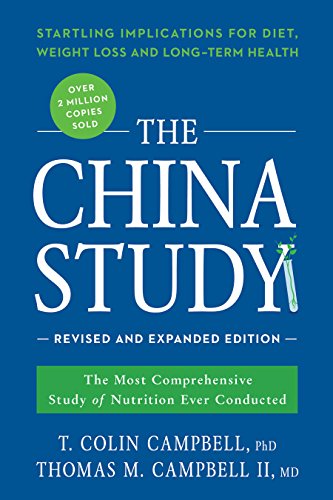

This article is an excerpt from the Shortform summary of "The China Study" by Colin Campbell. Shortform has the world's best summaries of books you should be reading.
Like this article? Sign up for a free trial here .
Is meat bad for you? And if so, why is meat bad for you?
In numerous studies, meat has been shown to increase your risk of everything from obesity and diabetes to cancer. We’ll cover why Americans eat so much meat, what the research says, and answer the question, “Is eating meat bad for you?”
Our Infatuation with Meat
If meat is bad for you, why haven’t you heard about it?
We live in a country that prioritizes the profits of a few over the health of all. The food and drug industries, the medical institution, the government, and universities all play their parts in conducting research and setting dietary guidelines that maintain the status quo. It’s not that everyone in the American health system is corrupt. But the problem is systemic, and it puts the lives of Americans at risk.
Before we answer the question, “Is meat bad for you?”, let’s examine how meat came to dominate the American diet.
We think we need to eat meat because we need it for protein. But the truth is, we can get all the protein we need from a variety of plants. So why do we associate protein with animal foods? The outsize role played by animal proteins in our culture and our understanding of healthy eating has been formed by a little science and even more myths.
Attitudes About Meat
When protein was discovered in the 19th century, people already believed that eating animals increased their endurance and strength. Eating animals also symbolized our dominance over other creatures. Any evidence of the benefits of animal protein was welcome news to a society that took pride in its place at the top of the food chain. Further, meat was expensive. Consequently, it was a status symbol: Eating meat demonstrated that you were rich and relying on plant foods demonstrated that you were poor.
These attitudes helped make protein synonymous with meat, and we’ve inherited them, whether we realize it or not. Even today, beef is probably the first thing you think of when someone says “protein.” We still believe that people who don’t eat meat are anemic and weak and that animal protein is an essential part of a healthy diet.
Is Meat Bad for You? What Does the Research Say?
Hundreds of research studies suggest that meat is bad for you. The idea that our favorite meat-rich meals could be making us sick is a hard truth to face. Ultimately, diet is the most powerful medicine in the prevention and reversal of disease. Let’s look at why meat is bad for you in the case of particular diseases.
Why Is Meat Bad for You?
Meat and Cholesterol
Recent studies have shown that virtually any amount of cholesterol in the blood leads to disease. One reason meat is bad for you is that it increases your blood cholesterol levels.
In one study, plant foods were correlated with decreasing levels of blood cholesterol and animal foods were correlated with increasing levels of blood cholesterol.
Foods and nutrients that were shown to increase blood cholesterol included animal protein, fat, and foods like eggs, milk, meat, and fish.
Of all the dietary factors, animal protein, like that in meat, had the strongest association with increased blood cholesterol. Eating saturated fat and cholesterol in foods also strongly increased levels, but not as dramatically as eating animal protein. Is meat bad for you? This study says yes.
So why were Chinese cholesterol levels so much lower than American cholesterol levels in the China Study? Because in rural China, people only eat an average of 7.1 grams of animal protein a day. That’s the amount of protein in three McDonald’s chicken nuggets. For comparison, in America, people eat an average of 70 grams of animal protein a day.
Researchers concluded that cutting down on animal proteins like meat was the most effective way to lower your blood cholesterol and, therefore, your risk of numerous diseases of affluence.
Meat and Heart Disease
Dr. Caldwell B. Esselstyn’s prescription of small amounts of cholesterol-lowering medication combined with a plant-based diet has gotten some of the best results ever recorded in the treatment of this disease. His studies suggest that meat is bad for you, especially combined with other risk factors for heart disease.
In a study he began in 1985, Esselstyn instructed his patients with advanced heart disease to avoid meat, fish, oil and most dairy products.
Results:
Over five years, cholesterol dropped from an average of 246 mg/dL to 132 mg/dL, far below the generally recommended 150 mg/dL target.
Clogged arteries opened in 70% of the patients, effectively reversing their disease.
In the eight years prior to the start of the study, the 18 participants had had a combined 49 coronary events, including bypass surgery, angioplasty, strokes, and heart attacks. But in the 11 years after the start of the study, there was only one coronary event among the 18 patients, and the patient who experienced that event had strayed from the dietary recommendations for two years. (When he started to experience chest pain, the single “coronary event” in the study, the patient went back to the plant-based diet and the chest pain disappeared.)
———End of Preview———

Like what you just read? Read the rest of the world's best summary of "The China Study" at Shortform . Learn the book's critical concepts in 20 minutes or less .
Here's what you'll find in our full The China Study summary :
- Why animal proteins (meat, milk) might cause cancer, diabetes, and other diseases
- Why the medical institution is structured to hide the truth about disease and food
- The precise diet you'll need to eat to live longer and feel happier






